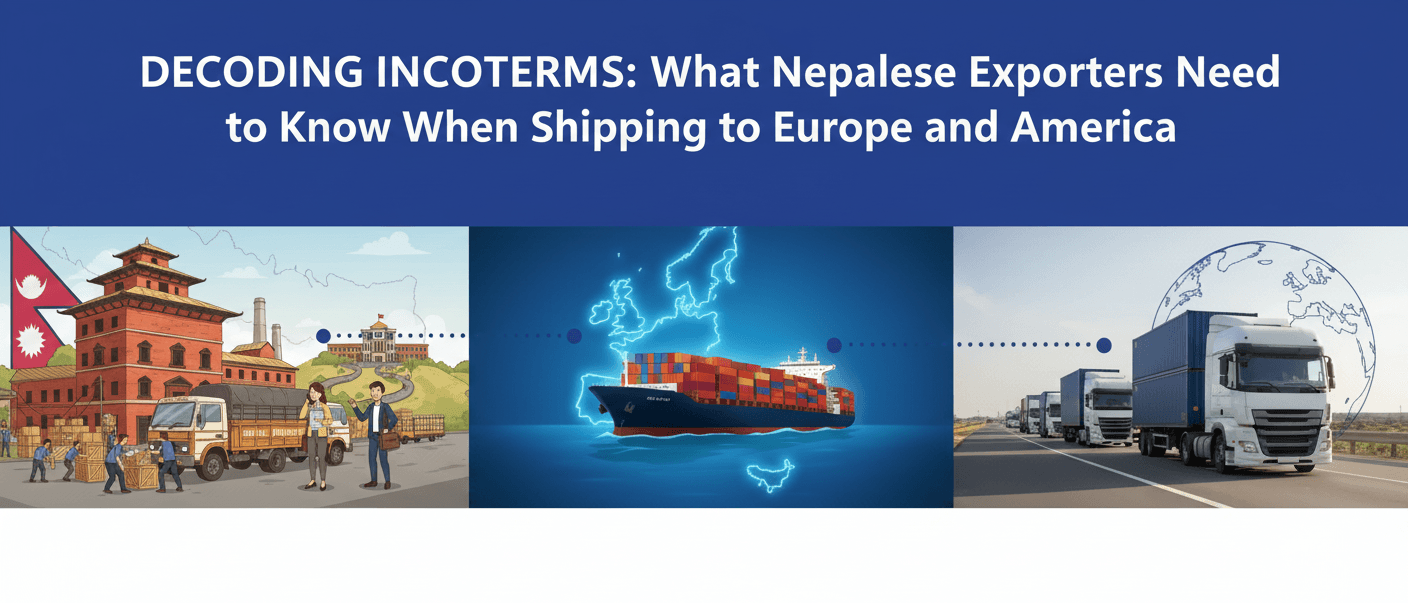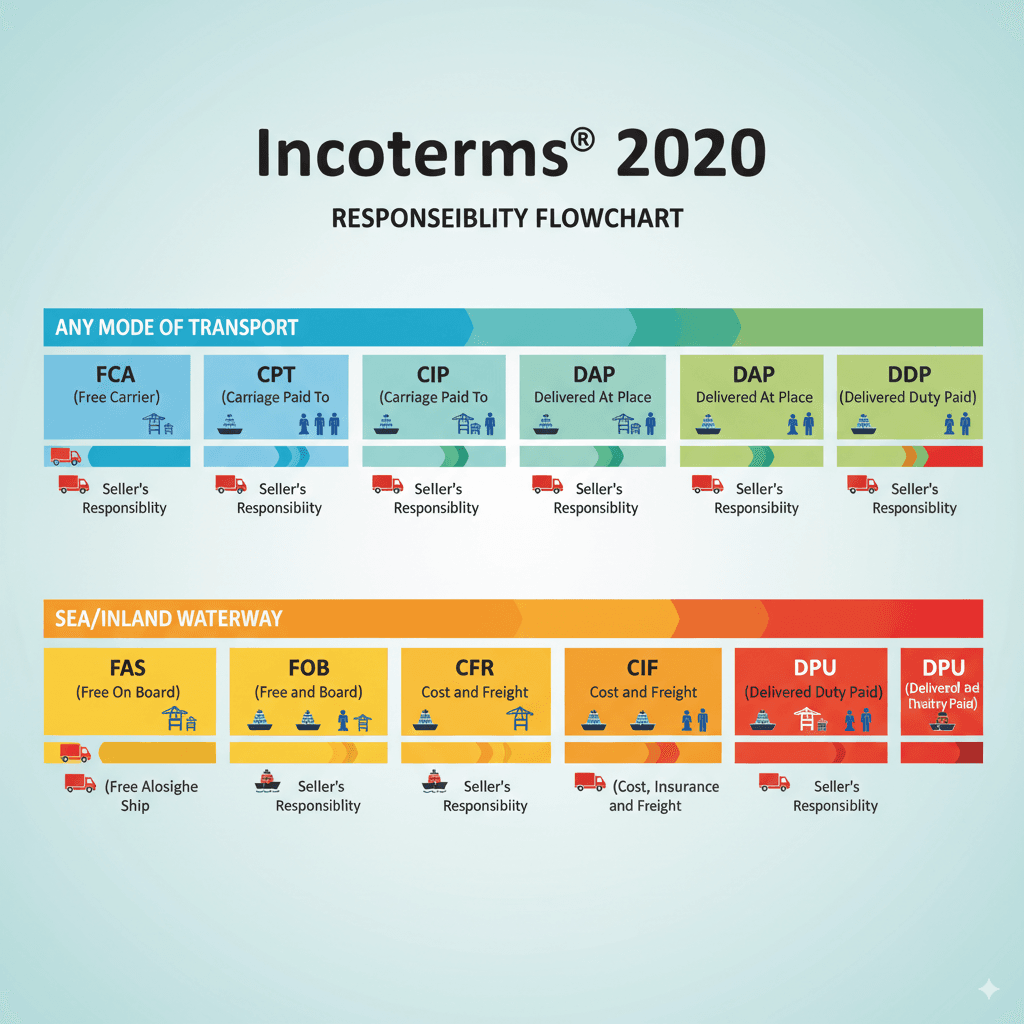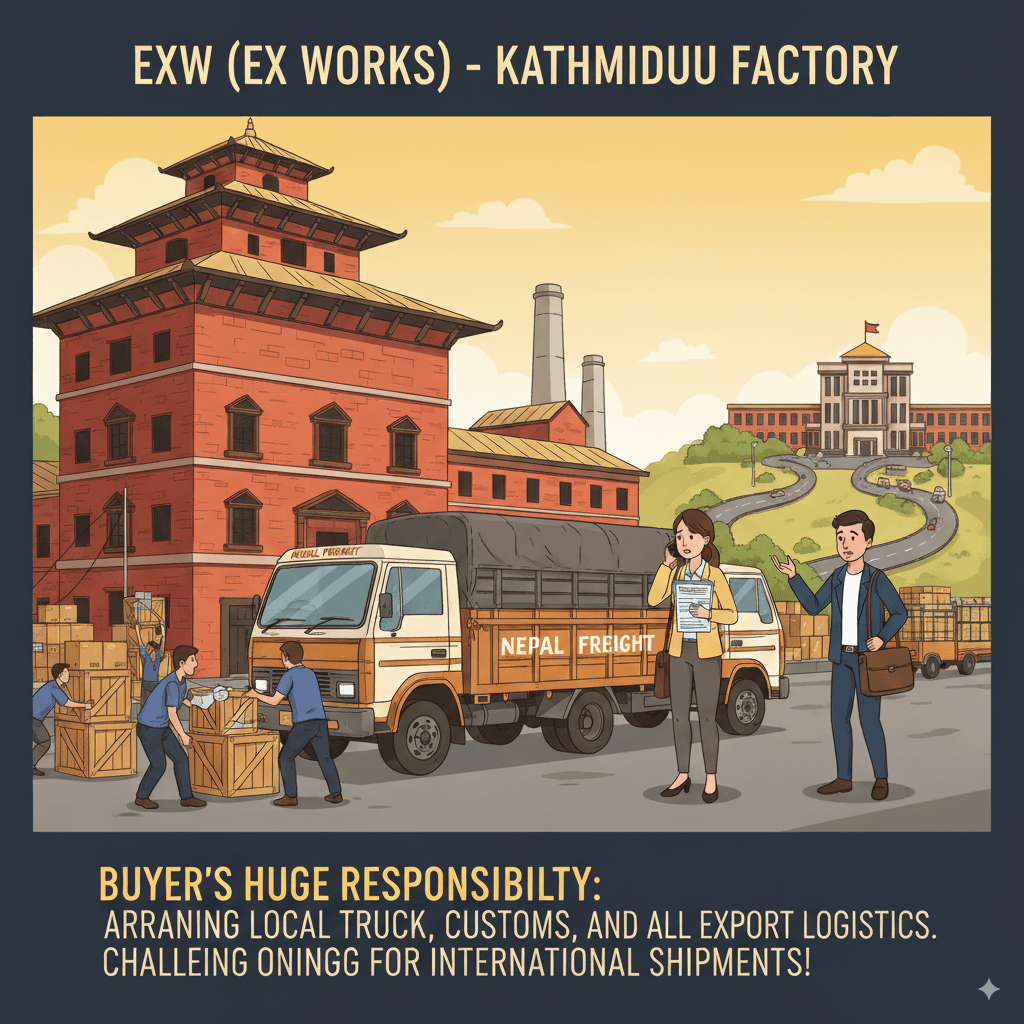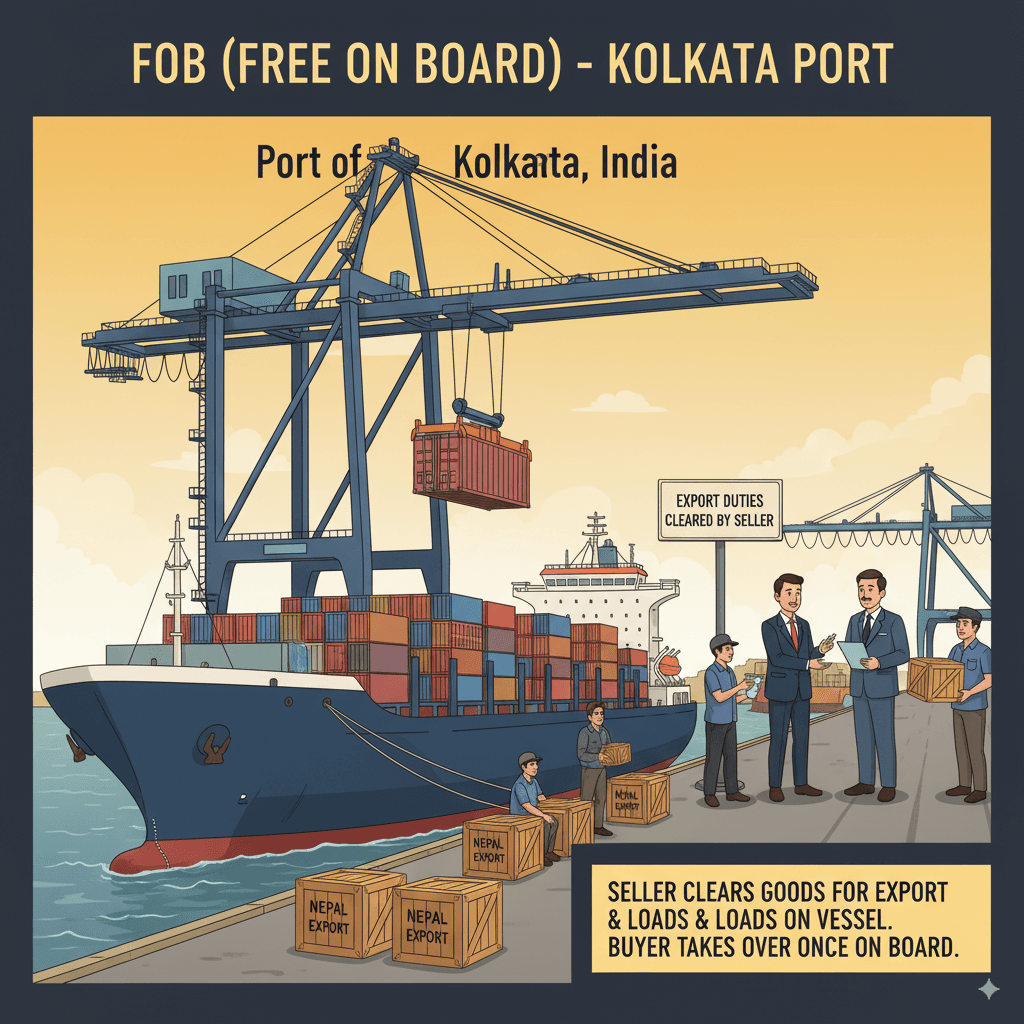
Decoding Incoterms: What Nepalese Exporters Need to Know When Shipping to Europe and America
Understanding Incoterms®: The Basics and Why They Matter
Incoterms®, short for International Commercial Terms, are a set of 11 globally recognized rules that define who is responsible for costs, risks, and tasks in the global shipping process crucial for anyone exporting from Nepal to markets like Europe and the United States. These terms are updated by the International Chamber of Commerce (ICC), with the latest edition—Incoterms® 2020, still in use as of 2025.
When Nepalese exporters choose the right Incoterm, they set clear boundaries about responsibilities, insurance, and delivery, reducing misunderstandings and costly disputes with European and American buyers.

Key Incoterms® Explained for Nepal-Europe & Nepal-America Shipments
Here’s a breakdown of the most commonly-used Incoterms® for long-haul Nepal exports to Europe and North America, and what they mean for your business.
EXW (Ex Works)
- Exporter’s responsibility is at its minimum: goods are made available at the factory/warehouse, and the buyer does the rest—even export clearance.
- Not recommended for most Nepal-Europe/US trades: buyers usually lack the required local expertise to handle the tricky Nepalese export process.

FCA (Free Carrier)
- Exporter delivers goods to a carrier or designated place in Nepal, after handling all export formalities.
- Widely considered best practice for Nepalese exports, especially with multimodal transport to European and American destinations.
- Greatly reduces delays and extra costs for buyers, since the seller clears Nepalese customs.
FOB (Free on Board)
- Classic for sea freight: exporter is responsible until goods are loaded on a vessel (usually at Kolkata).
- Common in textile, rug, and bulky goods trades from Nepal to the US/Europe.
- Buyer handles insurance, shipping, and import customs from that point onward.
CIF (Cost, Insurance & Freight) / CIP (Carriage & Insurance Paid)
- Exporter manages main freight and provides minimum insurance cover.
- CIF: Only for sea/inland waterway shipping; CIP: for any mode (often used for air cargo).
- Provides buyers with more peace of mind, but be aware: insurance is only “minimum cover,” and buyers often supplement it.
DAP (Delivered at Place), DPU (Delivered at Place Unloaded), DDP (Delivered Duty Paid)
- DAP/DPU: Exporter covers all transport to a nominated place in the destination country (often buyer’s warehouse/port), but buyer clears import customs and pays duties.
- DDP: Exporter covers transport and oversees import clearance/taxes.
- DDP can be tricky US and some EU countries only allow clearance/payment by local entities, so Nepalese exporters should use DAP for easier compliance.

Incoterms® Case Facts: Common Pitfalls and Best Practices for Nepalese Exporters
- Don’t Use EXW for International Exports: EXW (Ex Works) is best suited only for local sales. It places customs/export burdens on the buyer; using FCA is usually safer and more efficient.
- Be Cautious with DDP: Nepali companies trying to offer “door-to-door, all-in” with DDP may face US/EU rules that require import clearance by local (not Nepali) entities, causing delays or rejected shipments. DAP often works better.
- Always Specify the Version: State “Incoterms® 2020” in your sales contract. Using an older or unspecified version can cause confusion and legal headaches.
- Document Everything: Proper use of bills of lading, airway bills, and commercial invoices is non-negotiable for customs and payment.
- Insurance, Go Beyond Minimum: When using CIF or CIP, know that “minimum cover” may not be enough for fragile or high-value items. Discuss with your buyer whether to purchase additional insurance.
Final Tips: Winning at Incoterms® for EU and US Trade
- Talk it through: Discuss Incoterm options with your buyer; align risk, cost, and compliance up front.
- Stay updated: Incoterms® rules change. Use current resources and check for regulatory barriers in target countries.
- Ask an expert: If in doubt, work with international freight forwarders or export consultants (like Sea Sky Cargo), who know the fine print and can prevent costly mistakes.
- Check local laws: Both in Nepal and your destination; some places have rules that override Incoterms® defaults!
References:
- Incoterms 2020 Explained – Complete Guide (IncoDocs)
- ICC: Incoterms National Barriers Guide (2025)
- Sea Sky Cargo: Incoterms for Exporters
- TNT Nepal: Incoterms Explained
Have a question about using the right Incoterm for your Europe or US shipment? Ask Sea Sky Cargo, trusted by exporters for honest advice and smooth international delivery!
